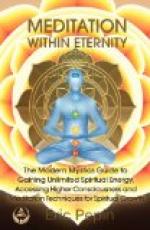Mrs. Harriet Beecher Stowe wrote of her, in an article published in the Atlantic Monthly, as early as 1863:
“I do not recollect ever to have been conversant with any one who had more of that silent and subtle power which we call personal presence, than this woman. In the modern spiritualistic phraseology, she would be described as having a ‘strong sphere.’”
The wonderful mental endowment which seems to follow as a complement to the experience of Illumination, when not already present, as in the case of Whitman, for example, is characteristic of “Sojourner Truth,” or Isabella, as she was baptized.
Naturally, this mental power, seemingly inconsistent with her humble origin, and her unlettered condition, is evidenced along those lines which made up the sum and substance of her life. Judging her from the broader concept of philosophy, Isabella appears somewhat fanatical, but the influence of her life and work was so great, that Wendell Phillips wrote of her:
“I once heard her describe the captain of a slave ship going up to judgment, followed by his victims as they gathered from the depths of the sea, in a strain that reminded me of Clarence’s dream in Shakespeare, and equalled it. The anecdotes of her ready wit and quick striking replies are numberless. But the whole together give little idea of the rich, quaint, poetic and often profound speech of a most remarkable person, who used to say to us: ‘You read books; God Himself talks to me.’”
Isabella’s conviction that she had “talked to God,” was unshakable, and was, indeed, the dynamic force which moved her. She was accustomed to tell of the strange and startling experience in which she met God face to face, and in which she said to Him: “Oh, God, I didn’t know as you was so big.” In the New England Magazine for March, 1901, there was given a full account of the work of this noted negro woman. Commenting on her sense of awe of the immensity of God “when she met him,” the writer says:
“The consciousness of God’s presence was like a fire around her and she was afraid, till she began to feel that somebody stood between her and this brilliant presence; and after a while she knew that this somebody loved her. At first, she thought it must be Cato, a preacher whom she knew or Deencia or Sally—people who had been her friends.
“We are not told whether these persons were living or dead, or whether she thought they had come in the flesh, or in the spirit to her relief. However this may be, she soon perceived that their images looked vile and black and could not be the beautiful presence that shielded her from the fires of God. She began to experiment with her inner vision, and found that when she said to the presence ‘I know you, I know you,’ she perceived a light; but when she said ‘I don’t know you,’ the light went out.
“At last, she became aware that it was Jesus who was shielding her and loving her, and the world grew bright, her troubled thoughts were banished, and her heart was filled with praise and with love for all creatures. ‘Lord, Lord,’ she cried, ‘I can love even de white folks.’”




